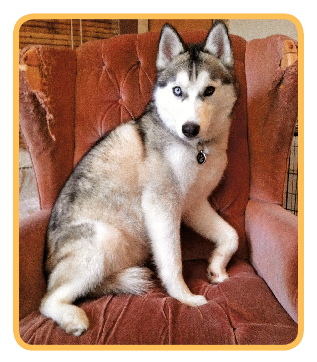- Dog CareDog LifeCommunity
- Photo Contest
Photo Contest- Giveaways
Is Your Dog Manipulating You?
Soko, a German Shepherd, is ball obsessed. Mojo, her Malmute-mix housemate, enjoys taking Soko’s ball, placing it in the middle of the floor, and then lying down and looking at her as if to say, “Go ahead. Make my day.” Soko, being smaller and non-confrontational, will suddenly prick up her ears as though she hears something outside. She’ll spring up and dart out the dog door, with Mojo hot on her heels. That accomplished, she’ll immediately race back inside and grab the ball.
Soko and Mojo were my dogs years ago, and this scenario happened many times. Was Soko manipulating Mojo? You bet.
Dogs certainly manipulate each other, but do they manipulate us? We like to think not. The word carries connotations of scheming, and we’re hesitant to think that our dogs are capable of such thought—and, if they are, that they’d use those wiles on us! But consider this: when I returned from a recent trip, my husband reported that he’d not only fed the dogs each day but had made sure they’d gotten their “dessert cookies.” Dessert cookies? What were those? He explained that after each meal, the dogs ran to the cookie box and looked at him expectantly. He figured the habit was to give them a cookie after eating, so he did. Hah! Score one for the dogs.To “manipulate” isn’t necessarily a nefarious thing. It really only means to control something or someone. If you think about it, I’ll bet you can come up with several ways your dog manipulates you on a regular basis. Maybe it’s the Dessert Cookies ploy, where you find yourself handing out extra treats after responding to those big puppy dog eyes. Or maybe you find yourself on the floor petting your dog because he rolled over on his back exposing his belly. (I don’t blame you; I mean, what else would any sane person do?) Perhaps your dog scratches on your bedroom door, waking you earlier than you’d like to take her for a walk, so out you go.
The above are all examples of your dog getting what he wants by behaving in a calculated way. And really, there’s nothing inherently wrong with that. Smart dogs! The problem comes when your dog is the one making the decisions. I’m not suggesting it’s a terrible thing to give your dog extra treats or affection when she asks; it’s just that you should be the one to decide. Let’s say you’re watching television. Your dog places his paw on your knee and looks at you as if to say, “You know you want to rub my chest.” Should you? Sure, if you want. If not, ignore your dog. If you’d like to pet him, ask him to do something first, such as sit or perform a trick he knows.
What you ask your dog to do when he wants something isn’t as important as the fact that you’re asking him to do something in order to earn the valued resource. That’s called leadership. In social groups, whether human or canine, the one with the most power gets to agree to or veto the ideas of others. For example, in a group of dogs, a lower ranking dog will solicit play, and the higher ranking one will either engage or not. The bottom line is, you get to decide whether to ignore your dog’s request or to give in—but again, if you do, ask her to do something to earn it. Manipulative? Maybe, but only in the best sense of the word.
Nicole Wilde is the award-winning author of Help for Your Fearful Dog, Don’t Leave Me, Hit by a Flying Wolf and other books. Her books, DVDs, and Wilde About Dogs blog can be found at nicolewilde.com.
Dogify Your Inbox
Sign up for the FREE Modern Dog Magazine newsletter & get the best of Modern Dog delivered to your inbox.
"*" indicates required fields
By clicking the arrow, you agree to our web Terms of Use and Privacy & Cookie Policy. Easy unsubscribe links are provided in every email.
 Soko and Mojo were my dogs years ago, and this scenario happened many times. Was Soko manipulating Mojo? You bet.
Soko and Mojo were my dogs years ago, and this scenario happened many times. Was Soko manipulating Mojo? You bet.